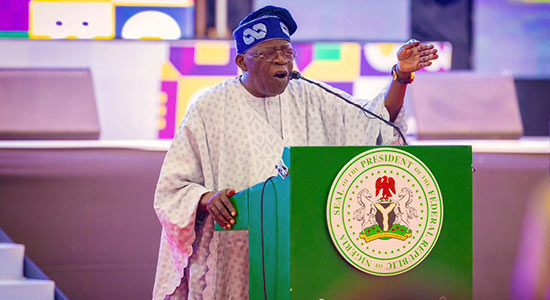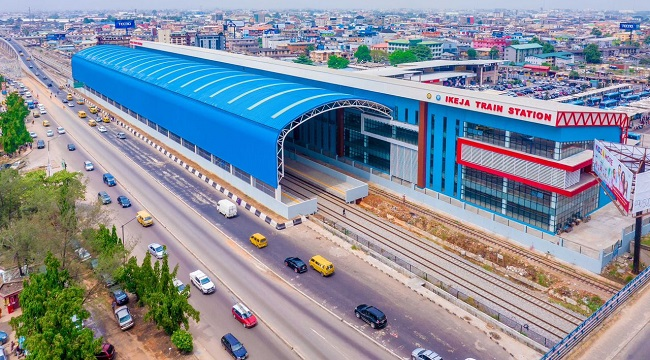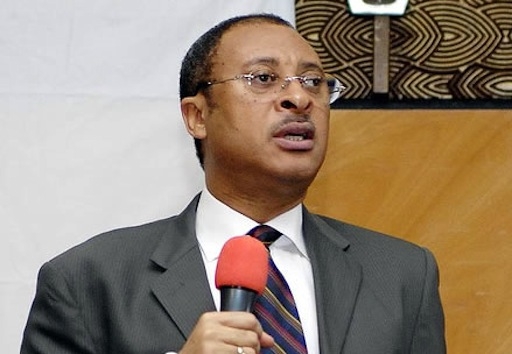Admin
[OPINION] Will the Humble Pie Heal ECOWAS? - Azu Ishiekwene
The resolutions following the Extraordinary Summit of the Heads of Government of the Economic Community of West African States (ECOWAS), at the recently concluded summit of Heads of State and Government in Abuja, were truly extraordinary.
Seven months after threatening to deploy force in Niger, one of the four delinquent states – the others being Mali, Guinea, and Burkina Faso – and three months after wide-ranging economic sanctions were imposed on all four, the regional body backed down spectacularly last week.
If the Afrobeat icon, Fela Anikulapo-Kuti, had rendered a welcome tune for the embattled regional leaders as they met in Nigeria’s capital, Abuja, it would have been his famous “Confusion Break Bone (CBB).” Misery never had a better company than the current state of affairs in the 50-year-old regional body, which apart from SADC, was perhaps Africa’s most exemplary model of regional co-operation.
While ECOWAS said it offered amnesty to its delinquent members on “humanitarian grounds”, the response from the military leaders in Bamako, Conakry, Ouagadougou and Niamey, has been mockingly indifferent. Yet the truth about how this 15-member regional block with annual trade valued at $150 billion came to this sorry pass is deeper and more nuanced than it appears.
Wrong turn
The Lomé Declaration of July 2000 recognised the continent was drifting and needed urgent course correction. An earlier era of democratic consolidation was being eroded by the return of military coups and the AU needed to create mechanisms to roll back the trend.
But that’s precisely where the problem was misdiagnosed. While continental leaders were rightly concerned that unconstitutional changes of government were once again becoming a clear and present danger, the emphasis has been big on response but often, too little too late, on prevention.
Nowhere has the situation played out more regrettably than in the delinquent Sahelian states of Mali, Guinea Burkina Faso and Niger. Whereas ECOWAS played a lead role in managing the crisis in Liberia and Sierra Leone; and forced Yahaya Jammeh to back down when he tried to play games in The Gambia after his final term, the problems in Francophone west Africa are more complicated. They speak French, which translated, means the continent should have prioritised prevention, instead of response.
The French question
The delinquent military leaders have accused ECOWAS of keeping silent while their countries have been ripped off by France for decades. This largely true, but partly self-serving sentiment has found a place in the hearts and minds of citizens in these countries.
France has accumulated a notoriously poor record on the continent that it can hardly be proud of. In Niger, for example, Tom Burgis writes in his book, The Looting Machine, that French state-owned atomic energy group Areva’s profit from uranium is twice Niger’s GDP. The footprint is the same everywhere in the region.
Fourteen Francophone countries, including the four troubled ones, store 50 percent of their reserves in the French Treasury, an arrangement which has been widely criticised. Even French President Emmanuel Macron, born after colonial rule, acknowledged this injustice with a heavy heart, but then turned around to say later it was a part of the “civilising” obligations of France. If civilisation means robbing a country at gunpoint and having the victims pay interest for the crime, I wonder what primitiveness would look like.
While France may be the most obvious, and perhaps the most perniciously complicit, it is not the only source of Francophone west Africa’s misery. As I wrote in an earlier article on this subject entitled, “Again, A Bizarre Joke in Niger Speaks French,” China, and lately, Russia, also have their hands in it for their own strategic interests. Yet, not a single one of these foreign powers have gotten away with murder without the complicity of the political elite in these countries – politicians and military alike.
It is convenient for the delinquent military leaders in the Sahelian states to look for scapegoats elsewhere, exploiting widespread insecurity, rampant poverty, identity politics and foreign meddling to gain legitimacy.
The point is, military leaders have no greater claim to patriotism than do the rest of us. We have seen in dozens of military coups on the continent that those who came claiming to be messiahs left their countries worse off.
Blaming Tinubu?
Where does the flip-flop and mollycoddling leave ECOWAS, a regional body obviously anxious to prove under the leadership of Nigeria’s President Bola Ahmed Tinubu, that it is as good as its word that coups would have no place on his watch?
It’s hard to blame Tinubu for pressing ECOWAS to act tough as military coups piled on themselves. As the leader of a country that had witnessed nearly half a dozen successful coups, he had to do what he did as a matter of self-preservation and enlightened interest.
The problem, however, was that there were so many artisans involved in making this broth, it turned out to be a chef’s nightmare. Strategy should never have been sacrificed for expediency.
The Delinquent Four have seen that the regional powerhouses have been considerably weakened and distracted internally by insurgency, political strife, economic crisis, and poor governance. Add that to a global system pre-occupied with the wars in Ukraine and the Middle East, then it becomes clearer why the Delinquent Four have adopted defiance as strategy.
The Chairman of the ECOWAS Commission, Omar Toure, expressed the hope that eating the humble pie is worth the price of losing four members. I’m not sure the Delinquent Four will withdraw their threat of leaving, U-turn or not. They’ve got ECOWAS exactly where they wanted and won’t be in a hurry to climb down. Sanctions hurt and studies have shown that they could have statistically significant immediate and long-term effects on the targets.
But that, of course, is assuming that the countries imposing sanctions have the capacity and will to enforce them. Even though the four countries targeted by ECOWAS are landlocked and therefore could ordinarily have felt the impact more, boundaries in the subregion are so porous and informal trade so deeply entrenched – about 30 percent of regional trade actually – a successful implementation of economic sanctions was always going to be quite problematic.
Then, there is the potential threat that if these countries harden beyond redemption, it would not only further weaken the multinational framework for containing insurgency in the region, these states may themselves become epicentres of regional destablisation.
As things are, ECOWAS will have to swallow its pride and set up credible negotiating teams with the Delinquent Four that take into account their grievances. The artisans have done enough harm. It’s unlikely that these military leaders would honour any transition guidelines but that must remain the minimum basis for any future agreements.
Tacky Macky Sall
There is, of course, the case of Senegal where President Macky Sall is also waiting to go rogue. Before ECOWAS is caught on the backfoot again, this would be a good time to start meaningful negotiations to ensure that Sall doesn’t endanger himself, his country and the subregion by extending his tenure too far beyond his already exhausted expiry date.
In light of the fragile situation in the continent, the AU must now pay far greater attention to prevention, focusing on triggers and early warning signs such as flawed elections, poor governance, and systemic corruption, instead of making a virtue of chasing the horses after they have bolted the stable.
That’s why the launch this week of the Regional Citizen’s Dialogue Programme (RCDP) in Abuja by a consortium of NIPSS, Kuru; the Dantiye Centre, Kano; the Sierra Leone-based regional cenre (RCGSPI); and KAICIID, to mobilise civil society and complement institutional effort at prioritising prevention deserves serious attention.
Who would have thought that three landlocked countries with a combined eight percent contribution to the $761billion GDP of ECOWAS, according to the World Bank, could hold the community to ransom, forcing it to swallow more than a trayful of humble pie?
Azu Ishiekwene is the Editor-In-Chief of LEADERSHIP.
Senate makes U-turn, agrees to extend retirement age of n’assembly staff
The senate has agreed to extend the retirement age of civil servants working in the national assembly.
The development comes a week after the upper legislative chamber threw out a bill on the subject. However, it concurred with the house on Thursday.
The bill, which has been passed by the house of representatives, is seeking to increase the retirement age to 65 years or 40 years of service, whichever comes first.
The existing law prescribes 60 years of age or 35 years of service for retirement.
Last week, some of the senators kicked against the bill, saying that special treatment should not be given to national assembly staff.
Specifically, Enyinnaya Abaribe, senator representing Abia south, said there is no difference between a civil servant in the national assembly and in a federal ministry.
“I have also looked at the retirement age for university lecturers and judicial officials which we passed about the same time,” Abaribe said.
“Coming down to the officers of the national assembly, I asked a simple question; What is the difference between the person who is a finance director in the national assembly and that in the ministry of finance?
“I do not see what separates the person who works inside here as a staff of the national assembly from the person who works in the ministry of commerce as a staff.
“We must not allow somebody to stay here beyond the rules of public service of Nigeria on retirement year.”
The senate has set up a committee to harmonise its bill with that of the lower legislative chamber.
[TheCable]
‘Meet Us In 2027 If You Want Power’ — Tinubu Fires Back At Protesting NLC

President Bola Ahmed Tinubu on Thursday condemned the recent protest by the Nigeria Labour Congress (NLC), warning the Labour movement to know that it is not the only voice of the people.
He spoke at the commissioning of the Lagos Red Line Train connecting from Agbado to Oyingbo.
The Labour Union had on Tuesday staged a protest over hardship in the land as well as the refusal of the federal government to implement agreement reached with the unions.
But Tinubu came hard on the Labour in the course of his remark, saying Labour Union should understand that despite its acclaimed right and freedom, it cannot fight an administration which is just nine-month old.
This is just as Tinubu stated that there was no going back on his reforms despite resistance by those he called ‘smugglers’.
He also reiterated that corruption is fighting back and vowed that the government would exterminate corruption.
Tinubu said the current hardship occasioned by the removal of fuel subsidy and the unification of the exchange rate is temporary, begging Nigerians to persevere.
“There is very bright light at the end of the tunnel. Nigeria will be out of economic problem, we just need to persevere and work hard,” the President declared.
But facing the Labour, he reiterated that the NLC is not the only voice of the people and warned the congress to maintain peace.
He said, “Allow me to throw a jab here. The Labour Union should understand that you are not the only with freedom and rights.
“If you want to participate in the electoral process, meet us in 2027. If not maintain peace. You are not only voice of Nigeria.”
The President said the commissioning of the red line was the culmination of the vision he nursed 25 years ago when he was governor of the state, calling for more collaboration between the Ministry of Transport and other states to develop railway infrastructures across the country.
Hat-trick Hero Victor Osimhen equals Diego Maradona’s Scoring feat At Napoli

Nigerian football star, Victor Osimhen equalled late legendary Argentina captain Diego Maradona’s scoring feat at Napoli, after bagging a hat-trick against Sassuolo.
Osimhen got his second-ever hat-trick in Serie A as Napoli thrashed Sassuolo 6-1 away on Wednesday night, February 28.
The Super Eagles striker has now scored in his last three games for the Italian league champions.
Also, he has taken his tally for the league campaign to 11 in 15 games.
His second goal against Sassuolo which put Napoli 3-1 ahead took his goals in the league to 10.
Osimhen is now the only third Napoli player in the club’s history to have scored 10 or more goals for four consecutive seasons.
Maradona did that between 1984 and 1988 and one has to go as far back as 1929, when Attila Sallustro achieved the same feat for the Partenopei, between 1929/30 and 1932/33).
Tinubu Inaugurates 37km Rail Project In Lagos

As part of effort to tackle traffic congestion and create a world class intracity transport experience, the 37 Kilometer Red Line rail project in Lagos State has been inaugurated.
The project was inaugurated by president Bola Tinubu on Thursday.
The North South rail route project will run from Agbado in Ogun state to Marina with 13 stations at Agbado, Iju, Agege, Ikeja, MMIA International, MMIA Domestic, Oshodi, Mushin, Yaba, Ebute meta, Iddo, Ebute Ero and Marina.
It is expected to embark on 37 trips daily, accommodating approximately 500,000 passengers.
Unlike the electric-powered Blue Line, the Red Line will use a diesel-powered system known as Diesel Multiple Unit (DMU). The Blue Line opened on September 4, 2023.
The rail system is managed by the Lagos Metropolitan Area Transport Authority (LAMATA)
Initial estimates of the Red Line project, was pegged at the cost of $135 million under the Greater Lagos Urban Transportation Project.
However, Governor Babajide Sanwo-Olu, revealed that both the Blue and Red Lines combined would exceed N100 billion. The construction of the project was handled by China Civil Engineering Construction Corporation (CCECC).
The idea of developing a rapid transit in Lagos state was conceived in 1983 with the Lagos Metroline network by Alhaji Lateef Jakande during the Second Nigerian Republic. The initial Metroline project was cancelled in 1985 by Muhammadu Buhari at a loss of over $78 million to the state tax payers.
However, in 2003, the then-governor Bola Tinubu revived the rail network for Lagos State with a formal announcement of its construction.
After the commissioning, Tinubu will depart Lagos for a two-day official visit to the State of Qatar on the invitation by His Highness, Sheikh Tamim bin Hamad Al Thani, Emir of the State of Qatar.
Hardship: PDP, LP, NNPP, others failing, not doing what’s expected of them – Pat Utomi

Renowned political economist Professor Pat Utomi has said opposition political parties in Nigeria are not living up to expectations.
He said the opposition political parties should be at the forefront of protests against hardship and suffering in the country.
He said they have failed in their responsibilities as opposition parties as they standby while the ruling party gets away with disastrous management of the nation’s affairs as the citizens grapple with worsening economic hardship and cost of living crisis.
Utomi voiced his displeasure in a post on his X handle on Thursday.
He said labour unions are now the ones leading protests because political parties are failing.
According to him, opposition parties lead protests in other climes, saying it is why the building of real parties is imperative.
He said: “The protests have come and gone. Power says they are political. What did they expect them to be, apolitical. Labour Unions are acting because political parties are failing. Elsewhere opposition parties lead the protests.This is why the building of real parties is imperative.”
Recall that the Nigeria Labour Congress, NLC, and other related unions protested the high cost of living, inflation, insecurity, and hardship in the country.
The NLC and the Trade Union Congress had issued a 14-day nationwide strike notice to the government over the failure to implement the agreements reached following the removal of the fuel subsidy
NFF Offers Jose Peseiro New Contract But Same $50,000 per month Salary
The Nigeria Football Federation (NFF) are in talks with the coach of the senior national team, Jose Peseiro over a new contract.
The NFF, according to reports have offered the Portuguese the same €50,000 monthly he was earning before he helped lead the Super Eagles to the final of the 2023 Africa Cup of Nations.
Peseiro previously earned $70,000 monthly but agreed a pay cut to $50k to lead the Super Eagles to the tournament.
The 63-year-old’s last contract ended at the end of the AFCON 2023 finals.
The former Saudi Arabia and Venezuela coach has been linked to several coaching jobs since the end of the AFCON with the Algeria Football Federation said to have strong interest in him.
The Portuguese revealed this week that he has “received at least seven offers from different national teams and clubs and will decide his future in the coming days.”
Senate Steps Down Bill Seeking Life Sentence For Drug Offenses
The Senate on Wednesday stepped down a bill seeking to confine to life sentence persons involved in drug-related offenses.
The bill which has passed the third reading in the House of Representatives and awaiting concurrence of the Senate seeks to Strengthen The Operations of the NDLEA, Empower the Agency To establish Laboratories, and Update the List of Dangerous Drugs
Presenting the proposed amendment for consideration, leader of the senate Opeyemi Bamidele says the bill will further review Penalty Provisions and enhance the power of the agency to prosecute drug-related Offences
The bill proposes that, any person who without lawful authority-
imports, manufactures, processes, plants, or grows drugs popularly known as cocaine, LSD, heroin, or any other similar drugs shall be sentenced to imprisonment for life.
The bill further states that exporters, transporters or traffickers of drugs shall be sentenced to imprisonment for life
It further stipulates imprisonment for life for anyone who sells, buys, exposes, or offers for sale or deals in drugs
It also proposes a term not less than fifteen years but not exceeding 25 years for inhaling or injecting drugs.
“Persons who unlawfully permit or use premises for the storing, concealing, processing or dealing in the drug will be liable on conviction to be sentenced to imprisonment for a term not exceeding 25 years”
Former Plateau State governor, Senator Simon Lalong in his contribution
says the Bill “is timely, as he also raised concern on the need for the classification of offenders based on the quantity of drugs caught with
Senator Lalong disclosed that the Drug Barons are patronized by high-class individuals in the society.
He called for a holistic approach in tackling the menace
The Senate thereafter tasked its committee on judiciary and narcotics to ensure wide consultation on the Bill ahead of the next legislative day.
Paul Pogba banned for four years over doping

France World Cup winner, Paul Pogba, has been banned from football for four years because of doping.
The punishment effectively ends Pogba’s career as the Juventus midfielder turns 31 years old in March.
Pogba, who has been suspended since last September, was tested in August and the results showed elevated levels of testosterone, a hormone that increases athletes’ endurance.
The tribunal said Pogba had violated anti-doping rules when they found the prohibited substance “non-endogenous testosterone metabolites”, a hormone that increases athletes’ endurance.
Meanwhile, a second test sample has now been checked and the former Manchester United star has been handed a four-year ban, considered among the strongest possible punishments for the offence.
Nigeria Bakers Association call off nationwide strike

The Bakers Association of Nigeria, AMBCN, has called off its strike following a discussion with the officials of the Ministry of Agriculture.
In a statement issued on Wednesday evening, signed by its president, Mansur Umar, the union said it had reached some agreements with the Nigerian government.
Umar, in the statement, said some of the agreements reached between the union and the government include the immediate export of 25,000 metric tons of wheat to flour companies for processing and supply to bakers.
The two parties also reached an agreement on revising the plan to produce flour from cassava, potatoes and sorghum.
He said an agreement was also reached to support breadbakers under a program of the Nigerian Ministry of Agriculture.
Recall that Bakery owners in Nigeria had gone on strike after struggling with the high cost of production and the unavailability of materials.
